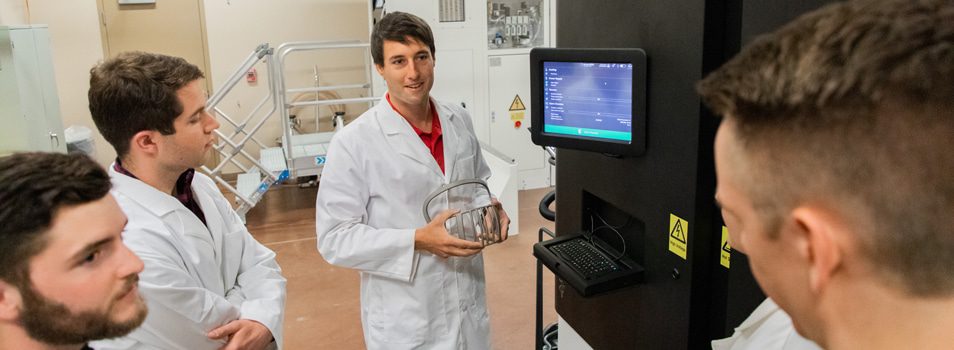Liberty University Engineering Invests in Cloud-Native HPC to Enable New R&D Capabilities
2,500+ HPC R&D Experiments Comprising 6+ Million Core Hours Across a Wide Variety of Engineering Research Projects.
Building a Legacy of Engineering Impact
Liberty University is on a mission to educate values-driven students in an environment that encourages innovation and impacts tomorrow’s society. In order to empower students and faculty researchers and continue to attract future leaders, the Liberty School of Engineering invests in curriculum and tools that enable cutting-edge research projects. Adapting to the demands of a quickly evolving industry landscape, the university has woven the practice of simulation-based design throughout its various disciplines. By applying simulation and other computational engineering approaches to its classes, competitions, and clubs, the school hopes to continue growing its reputation for producing
high-quality research and top graduates.

Solving the Obstacles to Next-Gen R&D
As one of the fastest-growing schools within Liberty, the engineering program soon required computation-intensive R&D and faced challenges providing adequate high-performance computing (HPC) resources. Across a wide range of engineering programs, including civil, electrical, industrial, mechanical, and computer engineering, the HPC software and hardware required vary greatly. Combining that variation with the ongoing need for support posed a challenge for the IT team, so they began to search for a solution that could quickly scale to the needs of the school. Brian Wilkes, Director of IT at Liberty, said, “When we received the request for a robust HPC system, we had concerns around cost and our ability to deliver it quickly. When we explored their specific requirements we knew we were short on personnel to implement and maintain a solution on-premises, so we explored options for cloud HPC.”
Evaluating the Best Path to Cloud HPC
Liberty’s IT and Engineering teams searched for a solution that could easily scale and support any number of students and an array of computational needs like batch HPC workloads and cloud desktops for visualization and pre/post-processing. Once they decided that cloud was their preferred strategy, they began to assess the work required to build their own cloud services on top of a public cloud service provider. In this process, the team was working to enable a specialized HPC software whose vendor had experience working with Rescale and recommended it as a comprehensive and easy-to-deploy HPC solution for that software. It was determined that Rescale could also support all of Liberty’s other HPC applications while providing prebuilt IT management tooling that would save the team significant implementation time.

From Resource Constrained to Compute-Empowered
Rescale helped the Liberty team overcome “limitations around cost, IT bandwidth, and expertise,” said IT Systems Operations Manager Dan Harmony. “Rescale provided an all-in-one HPC platform that was easy to implement, use, and control. IT allows us to manage the hardware and costs down to a project level, which is a huge benefit.” Giving Liberty researchers an easy-to learn user experience and flexible on-demand access to the latest cloud HPC tools through Rescale has opened up new possibilities. The Dean of the engineering school, Dr. Mark Horstemeyer, said, “Being able to efficiently leverage cloud HPC helps us use our staff and financial resources more efficiently and reach our goal of educating our students to go out and impact society by revamping the industrial world.”
Today, the Engineering school empowers students to explore complex questions through geological, weather, finite element, fluid-dynamic, thermodynamic, electromagnetic, and other computation-intensive simulation types. Students enrolled in engineering programs are free to utilize custom HPC software codes such as ‘Terra’, developed by Liberty professor and researcher Dr. John Baumgartner and widely used engineering applications like Simulia Abaqus
